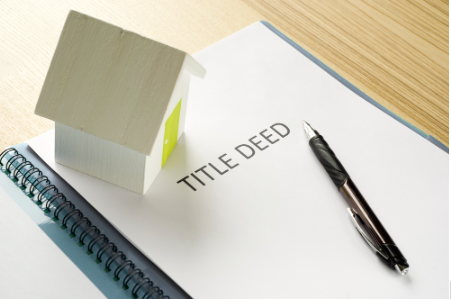
Buying a home or even property is a huge investment. When you’re putting so much into it, be sure that you have all the documents that are required. The list of documents that you need is pretty large, but let’s try and stick to the documents that are completely essential. A few of the legal documents that you require for the purchase or sale of property are given below.
Proving Ownership of Land
Quality Service Guarantee Or Painting Free
Unbeatable Price 5-Star Rated Partner! 2200+ Shades! Top Quality Paint Free Cancellation!
Get a rental agreement with doorstep delivery
Rental Agreement NOW

Find the BEST deals and get unbelievable DISCOUNTS directly from builders!
Find the BEST deals

5-Star rated painters, premium paints and services at the BEST PRICES!
Proving Ownership of a Flat
Similar to land ownership, documents include the Sale Deed, lease agreements if applicable, utility bills, and legal papers for inherited or gifted properties.
Documents Required for Selling Property
Local Registration Certificate: Specific to certain regions, like Karnataka's Khata certificate, confirming property tax details.
As the name suggests the deed talks about the sale and transfer of ownership of a property from the seller to the buyer. This document has to be registered in the Sub Registrar’s office. This sale deed is also needed to apply for a home loan and if you're looking to sell.

This is like the background story of your property. It will tell you if there are any dues or claims against your property. Buyers are more likely to trust you if your encumbrance certificate is all clear.
Katha means the account and is literally the account of a seller or the owner of the property. You’ll need Katha to register new property and transfer any property. This certificate is essential for you if you need to apply for a water or electricity connection. The Katha is of two types the Katha Certificate (explained above) and the Katha Extract. The extract is the only way to get key details of the property and it’s available from the assessment register.

Have you read those horror stories in the papers where houses were demolished? This is mostly because of illegal construction that has taken place, without the Building plan, which is one of the crucial documents required to sell a flat. Save yourself from such a situation by asking for a house plan approval or a building plan. This will state that the place where your property is located has been approved. It will also state if your building plan has been approved or not.
The Agreement to Sell is a foundational document in property transactions, encapsulating all pivotal details such as the sale price, property description, and mutually agreed-upon terms and conditions between the buyer and seller. This document serves as a legally binding contract that outlines the obligations and rights of both parties, ensuring clarity and setting the stage for a transparent and secure transaction. It marks the initial agreement before the final sale deed is executed, providing a roadmap for the transaction process.
A Title Search and Report is indispensable for prospective homebuyers, especially those applying for a home loan. This comprehensive document traces the history of the property, including previous ownerships, tenant details, and any encumbrances or liens against the property. It serves as a due diligence tool, ensuring that the buyer is fully informed of the property’s legal standing and any potential legal issues that could affect the purchase.
Receipt of Property Tax
The Receipt of Property Tax confirms that all dues on the property up to the date of sale have been fully paid by the previous owner. This document is crucial as it assures the buyer that no outstanding taxes could encumber the property. It plays a significant role in establishing the legal status of the property, offering peace of mind that the property is free of tax liabilities.
Issued by the municipal corporation or local government authority, the Occupancy Certificate verifies that the building has been constructed according to the approved plans and complies with all relevant building codes and regulations. It signifies that the building is safe and ready for occupancy, making it a critical document for buyers to ensure the legality and habitability of their new home.
For buyers, obtaining a statement from the bank regarding any outstanding loans against the property is a prudent step. This statement provides transparency and confirms whether the property is encumbered by a mortgage or any other financial liabilities. It ensures that the buyer is aware of and can make informed decisions regarding the financial aspects of the property purchase.
Non-objection Certificates (NOCs) are essential in the property transaction process, required from various departments such as Environmental, Traffic and Coordination, Pollution Board, and Sewage Board. These certificates affirm that the property development has met all regulatory and environmental standards, providing clearance for construction and indicating no legal or regulatory impediments to the development of the property.
A Sanctioned Building Plan approved by a statutory authority is a guarantee for the buyer that the property development adheres to the approved architectural plans and complies with local zoning and building laws. This document is vital for buyers to verify that there are no unauthorised alterations or deviations from the original plan, safeguarding against potential legal and structural issues in the future.
In some transactions, a Power of Attorney (POA) may be used when an individual acts on behalf of the property owner. This legal document authorises the POA holder to conduct transactions, including selling or buying property, on behalf of the owner. It is crucial in situations where the owner cannot be physically present, ensuring that the transaction can proceed legally and smoothly with the designated representative.
The NOC or No Objection Certificate is what the builder requires from all key government bodies such as the electricity department, water department, fire safety department and more. Without the NOC you will not be able to avail of these services (imagine living without electricity!).
If you’re buying a property that’s being re-sold always look for the property tax receipts from the last 3 years. This shows that there are no dues against the property and also that the property’s documents are in order.

While we've outlined the fundamental legal documents you need to buy and sell property, it's important to note that this is just the starting point. The required documents can vary based on the property type. For any assistance or queries regarding legal documents you need to buy and sell property or other legal services, consider leveraging NoBroker's legal services. Whether you're still in search of the perfect home or need expert guidance on the legalities, NoBroker is here to help with a wide array of options and professional support.
Remember, these are just the basic property sale documents you need to check. There is plenty more you need, and the documents change depending on the kind of property you’re purchasing. If you’ve not yet found a house that you’d like to buy, just visit NoBroker. we have plenty of options for you to choose from.

Ans. A sale agreement is a legally binding document signed by both buyer and seller on non-judicial stamp paper, outlining the terms for the forthcoming sale deed.
Ans. To sell property in India, essential documents include the Sale Deed, Sanctioned Plans, Society Documents, Encumbrance Certificate, and Sale Agreement.
Ans. NRIs selling property in India need a passport, PAN card, tax returns, address proof, sale deed, allotment letter, encumbrance certificate, and society documents.
Ans. An NOC for an immovable application receipt is essential for validating the legal transfer and registration of property ownership, ensuring the buyer's rightful title.
Ans. An Encumbrance Certificate verifies a property's title is free from legal liabilities, crucial for buyers to confirm clear ownership.
Ans. Yes, you can sell your house while paying your mortgage, but you'll need a No Objection Certificate from your lender and must settle any outstanding loan balance.
Loved what you read? Share it with others!